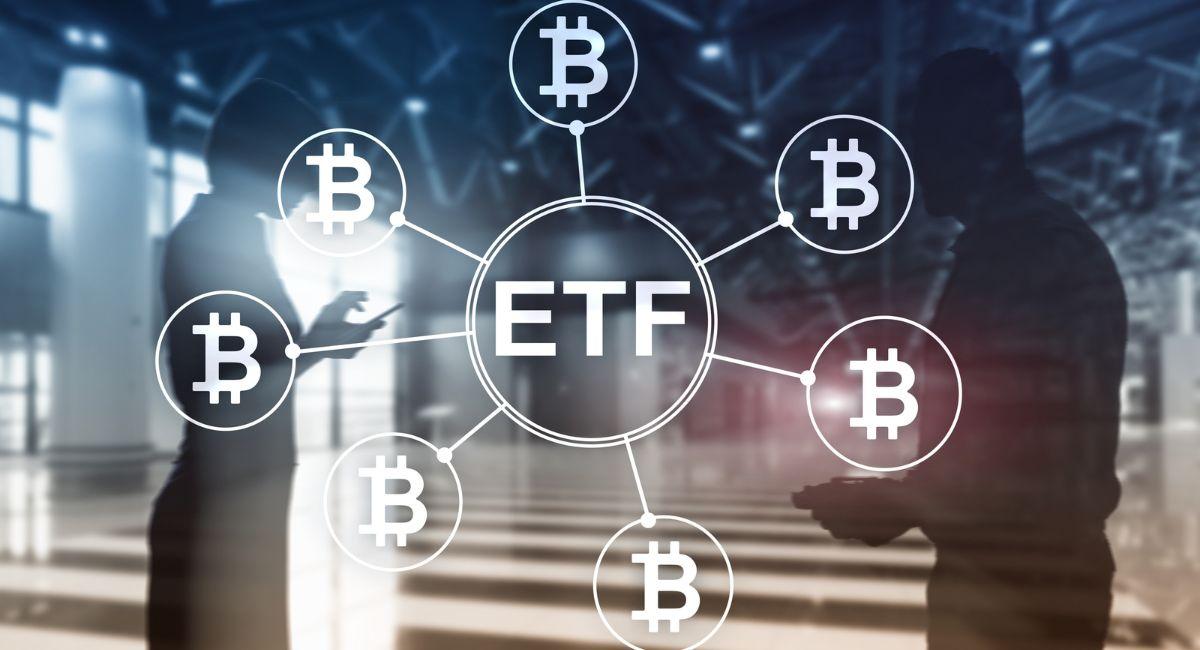As the popularity of Bitcoin ETFs as a digital asset and store of value continues to grow, investors have multiple avenues to gain exposure to this innovative financial instrument. Two prominent options are holding Bitcoin Exchange-Traded Funds (ETFs) and directly owning Bitcoin. In this article, we explore the top 10 differences between these two investment approaches, shedding light on their unique characteristics and considerations.
Understanding the Challenges and Delays in Bitcoin ETF Approval
Bitcoin Exchange-Traded Funds (ETFs) have been a topic of significant interest and discussion within the financial and cryptocurrency communities. While many investors and enthusiasts anticipate the introduction of Bitcoin ETFs as a means of mainstream adoption and exposure to digital assets, several challenges and factors have contributed to delays in their approval. To grasp the intricacies of what is holding back Bitcoin ETFs, let’s delve into the key elements:
1. Regulatory Uncertainty:
- Evolution of Regulatory Landscape: Regulatory bodies, such as the U.S. Securities and Exchange Commission (SEC), play a crucial role in approving financial instruments like ETFs. The evolving nature of the cryptocurrency space has led to regulatory uncertainty, with concerns about investor protection, market manipulation, and adherence to existing securities laws.
- Need for Clear Guidelines: The absence of clear and comprehensive regulatory guidelines specific to cryptocurrencies has made it challenging for regulators to formulate a framework for Bitcoin ETFs. Regulatory agencies are cautious and deliberate in their approach to ensure investor safety and market integrity.
2. Market Manipulation Concerns:
- Volatility and Manipulation: Bitcoin’s price volatility and the potential for market manipulation have been significant concerns for regulators. The decentralized and relatively young nature of the cryptocurrency market has led to worries about the susceptibility of Bitcoin prices to manipulation, impacting the fairness and transparency of ETF pricing.
- Lack of Surveillance Tools: Traditional financial markets have well-established surveillance mechanisms to monitor and prevent manipulation. The absence of similar tools in the cryptocurrency space raises concerns about the ability to detect and prevent fraudulent activities in a Bitcoin ETF.
3. Custody and Security:
- Secure Storage of Assets: ETFs require a secure custody solution for holding the underlying assets. Ensuring the safe storage of Bitcoin, a digital asset susceptible to hacking and cyber threats, is a critical consideration. Regulators are keen on robust custody solutions that can safeguard investors’ holdings.
- Industry Maturation: The cryptocurrency custody industry is still evolving, and regulators are cautious about approving ETFs until they are confident in the maturity and effectiveness of custody solutions available in the market.
4. Market Liquidity and Price Discovery:
- Liquidity Challenges: Liquidity is a key factor in the efficient functioning of financial markets. Concerns about the liquidity of Bitcoin markets, particularly in times of stress or high demand, have been raised by regulators. Ensuring sufficient liquidity is crucial for the smooth operation of an ETF.
- Price Discovery Mechanisms: Cryptocurrency markets may lack some of the price discovery mechanisms present in traditional markets. Regulators are mindful of the need for robust and transparent price formation mechanisms to prevent potential distortions in the ETF’s net asset value (NAV).
5. Investor Protection:
- Educational Efforts: Regulators are focused on investor protection, particularly in a market that may be less familiar to traditional investors. The SEC, for example, has emphasized the importance of investor education and understanding the unique risks associated with cryptocurrency investments.
- Market Surveillance and Oversight: Ensuring effective market surveillance and oversight is crucial for safeguarding investors. Regulators want to establish mechanisms that can promptly detect and address any irregularities or market abuses.
6. Global Coordination:
- International Collaboration: Cryptocurrencies operate on a global scale, and their regulation requires international coordination. Regulators are cognizant of the need for a collaborative approach with other jurisdictions to create consistent and harmonized standards for Bitcoin ETFs.
- Global Regulatory Variances: Divergent regulatory approaches across countries can create challenges for issuers and regulators. Harmonizing these approaches will contribute to a more cohesive and globally accessible market for Bitcoin ETFs.
7. Ongoing Industry Developments:
- Continuous Evolution: The cryptocurrency industry is continuously evolving, with new developments, technologies, and market participants entering the space. Regulators are keen on staying informed about these developments to adapt their frameworks accordingly.
- Innovative Financial Products: The emergence of innovative financial products, such as decentralized finance (DeFi) and tokenization, adds complexity to the regulatory landscape. Regulators are cautious about ensuring that the approval of Bitcoin ETFs aligns with the broader financial ecosystem.
The delay in approving Bitcoin ETFs is a multifaceted issue, encompassing regulatory considerations, market dynamics, and the evolving nature of the cryptocurrency ecosystem. While many stakeholders eagerly await the introduction of Bitcoin ETFs as a milestone for mainstream adoption, regulators remain diligent in addressing concerns related to investor protection, market integrity, and the maturity of the cryptocurrency market. As the industry continues to develop, regulatory frameworks will likely evolve, potentially paving the way for the approval of Bitcoin ETFs and their integration into traditional financial markets.
Also, read- The Complex World Of Bitcoin CME Gaps And Its Top 10 Trading Strategies
Direct Bitcoin Ownership: Unraveling Challenges and Embracing Benefits

Direct Bitcoin ownership refers to the act of individuals or entities holding and managing Bitcoin directly, typically in a personal or organizational wallet. Unlike indirect ownership through financial instruments like exchange-traded funds (ETFs) or derivatives, direct ownership provides individuals with control and ownership of the actual Bitcoin. This ownership method presents a range of challenges and benefits, shaping the landscape for Bitcoin investors and enthusiasts.
Benefits of Direct Bitcoin Ownership:
- Ownership and Control:
- True Custodianship: Direct ownership grants individuals full custodianship of their Bitcoin holdings. Private keys, necessary for accessing and managing Bitcoin, are in the hands of the owner, providing a sense of control and autonomy.
- No Intermediaries: By holding Bitcoin directly, individuals bypass intermediaries, such as banks or brokers. This eliminates third-party risk and allows for direct engagement with the decentralized nature of Bitcoin.
- Security and Privacy:
- Enhanced Security Measures: Direct ownership allows users to implement their chosen security measures. Cold storage solutions, hardware wallets, and multi-signature setups provide enhanced security against potential hacks or unauthorized access.
- Privacy Considerations: Holding Bitcoin directly can offer increased privacy compared to using intermediaries. Users can control the level of personal information exposed, fostering a sense of financial privacy.
- Participation in Network Consensus:
- Voting Power: Bitcoin operates on a decentralized consensus mechanism. Direct owners of Bitcoin have the opportunity to participate in decision-making processes by supporting specific network upgrades through node operation or participating in governance mechanisms.
- Support for Decentralization: Direct ownership aligns with the core principles of decentralization, as it encourages more individuals to actively engage with the Bitcoin network, contributing to its security and resilience.
- Long-Term Investment Perspective:
- Holding for Appreciation: Many direct Bitcoin holders view it as a long-term investment. By holding and not frequently trading, they anticipate potential future appreciation in the value of Bitcoin.
- Exposure to Bitcoin Ecosystem: Direct ownership allows individuals to benefit from the broader Bitcoin ecosystem, including potential airdrops, forks, and participation in various projects built on the Bitcoin blockchain.
Challenges of Direct Bitcoin Ownership:
- Security Risks:
- Risk of Loss: Direct ownership entails the risk of loss due to theft, accidental loss of private keys, or other security vulnerabilities. Individuals must take proactive measures to secure their Bitcoin holdings.
- Lack of Recovery Options: Unlike traditional banking where account recovery options exist, the irreversible and pseudonymous nature of Bitcoin transactions means that lost funds are often unrecoverable.
- Operational Complexity:
- Technical Proficiency: Direct ownership requires a certain level of technical proficiency to manage wallets, private keys, and security measures. Individuals not well-versed in these aspects may find it challenging to navigate the operational complexities.
- Transaction Responsiveness: Direct owners are responsible for managing their transactions, including setting appropriate fees and dealing with potential delays during periods of network congestion.
- Regulatory Considerations:
- Legal Implications: Regulatory environments vary, and individuals holding Bitcoin directly may encounter legal considerations. Tax implications, reporting requirements, and compliance with local regulations can add complexity to direct ownership.
- Potential Regulatory Changes: Regulatory landscapes are subject to change, and direct Bitcoin owners must stay informed about potential shifts that could impact their ability to hold, transfer, or use Bitcoin.
- Market Volatility:
- Exposure to Price Fluctuations: Direct ownership exposes individuals to the inherent volatility of the cryptocurrency market. Price fluctuations can lead to substantial gains or losses depending on market conditions.
- Psychological Impact: Managing direct ownership requires a certain psychological resilience to navigate the emotional impact of market price swings, especially during periods of high volatility.
Direct Bitcoin ownership offers a unique and empowering experience for individuals seeking control, privacy, and participation in the decentralized ecosystem. However, it comes with its set of challenges, ranging from security risks to operational complexities and regulatory considerations. As the landscape of cryptocurrency evolves, the decision to hold Bitcoin directly involves a careful consideration of personal preferences, risk tolerance, and the commitment to understanding and navigating the dynamic nature of the cryptocurrency space. Balancing the benefits and challenges of direct ownership is crucial for individuals seeking a hands-on and decentralized approach to managing their Bitcoin holdings.
Top 10 Differences Between Holding Bitcoin ETFs and Direct Bitcoin Ownership

1. Ownership Structure:
- Bitcoin ETFs: Investing in a Bitcoin ETF involves owning shares of a fund that holds Bitcoin. Investors do not directly own the underlying Bitcoin but hold shares representing their stake in the fund.
- Direct Bitcoin Ownership: Owning Bitcoin directly means holding the digital asset in a personal wallet. Investors have direct ownership and control over their Bitcoin holdings.
2. Custodial Arrangements:
- Bitcoin ETFs: Custodians manage the Bitcoin held by ETFs on behalf of investors. Investors do not have direct access to the private keys governing their holdings.
- Direct Bitcoin Ownership: Investors who own Bitcoin directly are responsible for their private keys and wallet security. This approach provides greater control over custodial arrangements.
3. Tradability and Liquidity:
- Bitcoin ETFs: ETF shares are traded on traditional stock exchanges, providing ease of tradability during market hours. Investors can buy and sell shares throughout the trading day.
- Direct Bitcoin Ownership: Bitcoin operates 24/7, allowing for continuous trading. However, liquidity can vary on cryptocurrency exchanges, and investors may face limitations during certain hours or in less liquid markets.
4. Expense Ratios and Fees:
- Bitcoin ETFs: Investors typically incur management fees and other expenses associated with the operation of the ETF. These fees are deducted from the fund’s assets, affecting overall returns.
- Direct Bitcoin Ownership: Ownership of Bitcoin involves transaction fees when buying or selling on cryptocurrency exchanges. However, there are no ongoing management fees as with ETFs.
5. Tax Implications:
- Bitcoin ETFs: Tax implications for ETFs depend on the investor’s jurisdiction and the specific tax treatment of ETFs. Dividends and capital gains may be subject to taxation.
- Direct Bitcoin Ownership: Tax treatment varies, but in many jurisdictions, holding Bitcoin as a capital asset may incur capital gains taxes upon selling or exchanging. Understanding local tax regulations is crucial for managing tax implications.
6. Security Considerations:
- Bitcoin ETFs: Investors rely on the security measures implemented by the ETF custodian. Risks related to hacking or fund mismanagement are externalized to the custodian.
- Direct Bitcoin Ownership: Security is in the hands of the individual Bitcoin holder. Implementing robust security measures for personal wallets is essential to protect against hacking and unauthorized access.
7. Dividends and Income:
- Bitcoin ETFs: Some ETFs may distribute income generated from activities like lending Bitcoin to generate yield. Investors may receive periodic dividends or income distributions.
- Direct Bitcoin Ownership: Direct ownership does not typically yield income in the form of dividends. Bitcoin’s value appreciation is the primary driver of returns for direct holders.
8. Regulatory Oversight:
- Bitcoin ETFs: ETFs are subject to regulatory oversight by financial authorities, providing a layer of investor protection and compliance with financial regulations.
- Direct Bitcoin Ownership: Direct ownership of Bitcoin operates in a relatively less regulated space. Investors must navigate the evolving regulatory landscape governing cryptocurrencies.
9. Flexibility in Transactions:
- Bitcoin ETFs: Transactions involving ETF shares are subject to stock market hours and brokerage platform restrictions. Investors may face limitations in executing trades at specific times.
- Direct Bitcoin Ownership: Bitcoin transactions are not bound by market hours, allowing for flexibility in buying or selling at any time. This can be advantageous for investors who value continuous market access.
10. Long-Term Storage Considerations:
- Bitcoin ETFs: Investors do not need to worry about long-term storage considerations, as the ETF custodian manages the storage and security of the underlying Bitcoin.
- Direct Bitcoin Ownership: Long-term storage considerations are crucial for direct Bitcoin owners. Implementing secure cold storage solutions is recommended for holding Bitcoin over an extended period.
Conclusion:
Choosing between holding Bitcoin ETFs and owning Bitcoin directly involves considering factors such as ownership structure, custodial arrangements, tradability, fees, and regulatory oversight. Each approach has its unique advantages and challenges, and investors must align their preferences, risk tolerance, and investment goals when deciding on the most suitable option for gaining exposure to Bitcoin in the ever-evolving financial landscape.
Stay informed with daily updates from Blockchain Magazine on Google News. Click here to follow us and mark as favorite: [Blockchain Magazine on Google News].


 Bitcoin
Bitcoin  Ethereum
Ethereum  XRP
XRP  Tether
Tether  Solana
Solana  Dogecoin
Dogecoin  USDC
USDC  Cardano
Cardano  Lido Staked Ether
Lido Staked Ether  TRON
TRON  Chainlink
Chainlink  Avalanche
Avalanche  Wrapped stETH
Wrapped stETH  Sui
Sui  Wrapped Bitcoin
Wrapped Bitcoin  Toncoin
Toncoin  Stellar
Stellar  Hedera
Hedera  Shiba Inu
Shiba Inu  Polkadot
Polkadot  WETH
WETH  LEO Token
LEO Token  Litecoin
Litecoin  Bitcoin Cash
Bitcoin Cash  Bitget Token
Bitget Token  Hyperliquid
Hyperliquid  Uniswap
Uniswap  Official Trump
Official Trump  USDS
USDS  Wrapped eETH
Wrapped eETH  Pepe
Pepe  NEAR Protocol
NEAR Protocol  Ethena USDe
Ethena USDe  Aave
Aave  Aptos
Aptos  Internet Computer
Internet Computer  Monero
Monero  WhiteBIT Coin
WhiteBIT Coin  Ondo
Ondo  Ethereum Classic
Ethereum Classic  Cronos
Cronos  POL (ex-MATIC)
POL (ex-MATIC)  Mantle
Mantle  Render
Render  Dai
Dai  MANTRA
MANTRA  Algorand
Algorand 





